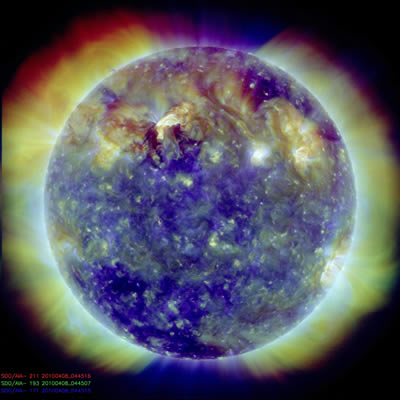Solar Flares Remind of Greater Dangers
Jackson Marsteller /
Last Thursday, the earth experienced a powerful solar flare, one of the most powerful types of storms that the sun can create. According to NASA, this flare “triggered some disruption to radio communications on earth beginning about 45 minutes later.” A massive solar event could create disturbances that are far worse.
The sun is likely going to produce more solar flares from this area, according to the National Oceanic and Atmospheric Administration.
The first unusually large solar flare was first observed by British astronomer Richard Carrington in 1859. Telegraph operators were shocked unconscious and their machines caught on fire as the electro-magnetic forces from the flare surged through the lines. If solar activity on a similar scale occurred today, the results might be devastating, crippling the electrical systems that sustain modern life.
According to Heritage’s James Jay Carafano:
Communications would collapse, transportation would halt, and electrical power would simply be nonexistent. Not even a global humanitarian effort would be enough to keep hundreds of millions of Americans from death by starvation, exposure, or lack of medicine. Nor would the catastrophe stop at U.S. borders. Most of Canada would be devastated, too, as its infrastructure is integrated with the U.S. power grid. Without the American economic engine, the world economy would quickly collapse. Much of the world’s intellectual brain power (half of it is in the United States) would be lost as well. Earth would most likely recede into the “new” Dark Ages.
The United States cannot afford to ignore the potential devastating effects of massive solar activity. The U.S. should develop a national plan to respond to space weather emergencies. This would also involve educating federal, state, and local officials along with the public about the risks and response options.
Along with a national plan, the U.S. should host international disaster exercises to increase the ability of countries that are friendly with the United States to readily accept aid from one another when disaster strikes.

